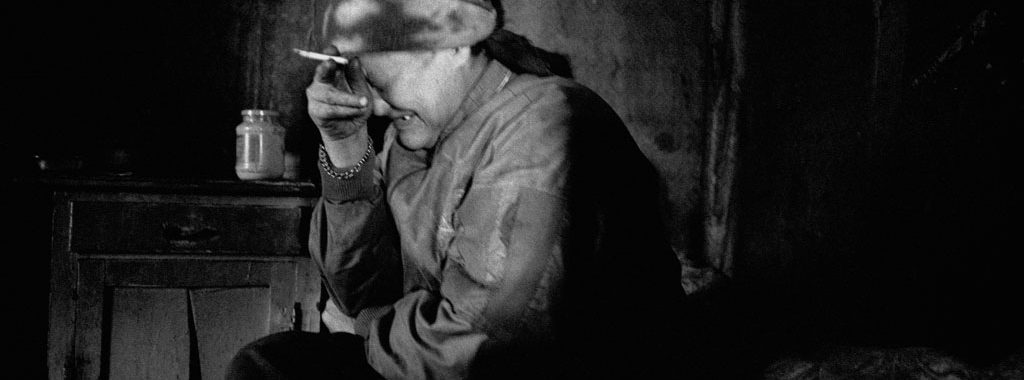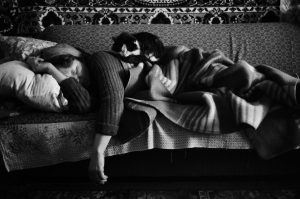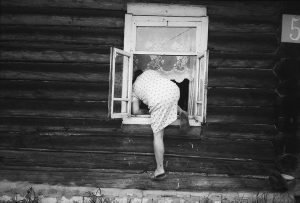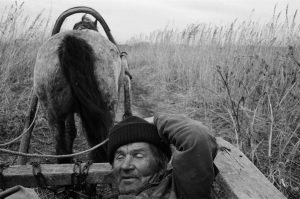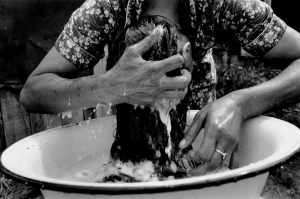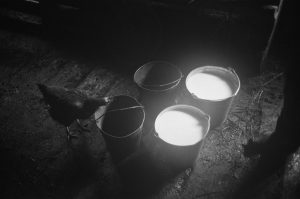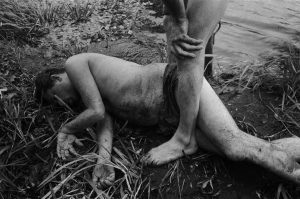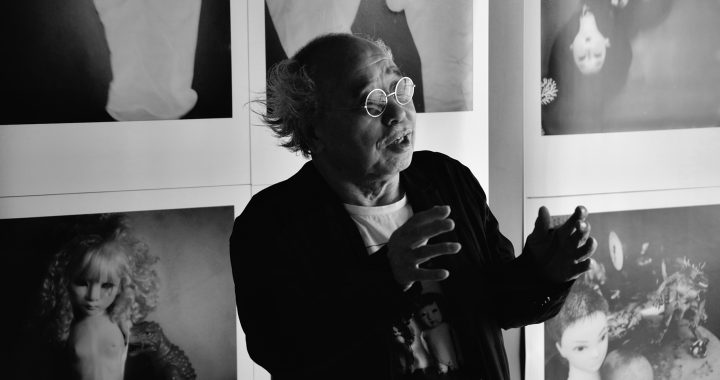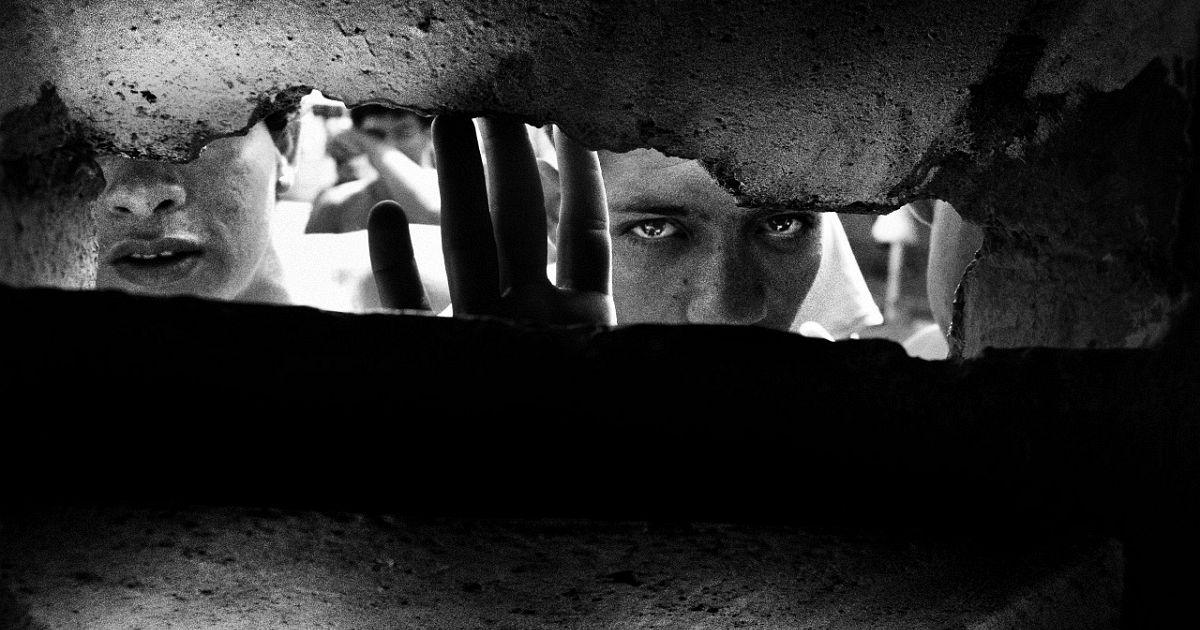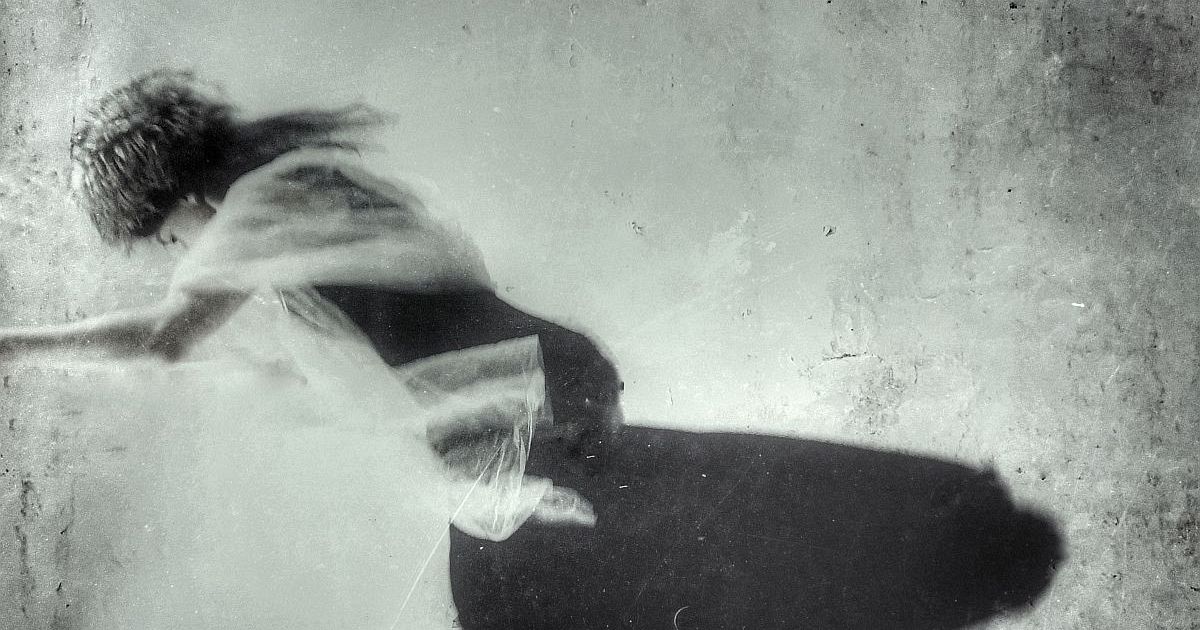Work of Alexandra Demenkova is devoted to people. She photographs isolated communities not only in social meaning but also remotely. She often shoots in places that are not on any official map. In social photography she focuses on raw life, emotions and truth. Her approach to the image is gentle and it has become a natural part of her life. The next interview is about her inner strength, about why she photographs and how she approaches her work.
Did you study photography or are you a self-thought?
I studied photography at the Faculty of Photojournalism in Saint-Petersburg in 2000-2002. But it is only in 2004 that I made the first photographs I can show now. Later on I attended a couple of photography workshops including Joop Swart Masterclass of World Press Photo and Reflexions Masterclass founded by Giorgia Fiorio. In 2008 and 2009 I was an artist-in-residence in Rijksakademie van Beeldende Kunsten in Amsterdam. But if you do photography (pretty much like everything else) you kind of “study” it constantly just by living your life, by looking at photographs and photographing, by recalling your dreams, by developing relations, by reading, etc.
What inner power pushes you to work on long-term documentary?
I do not know. I could give you a couple of (totally) different answers. It definitely is an inner necessity that is hard to explain. It is a “hungry eye” as Walker Evans puts it. It is curiosity, it is desire, it is a path. Basically, it is the only thing I can do for real.
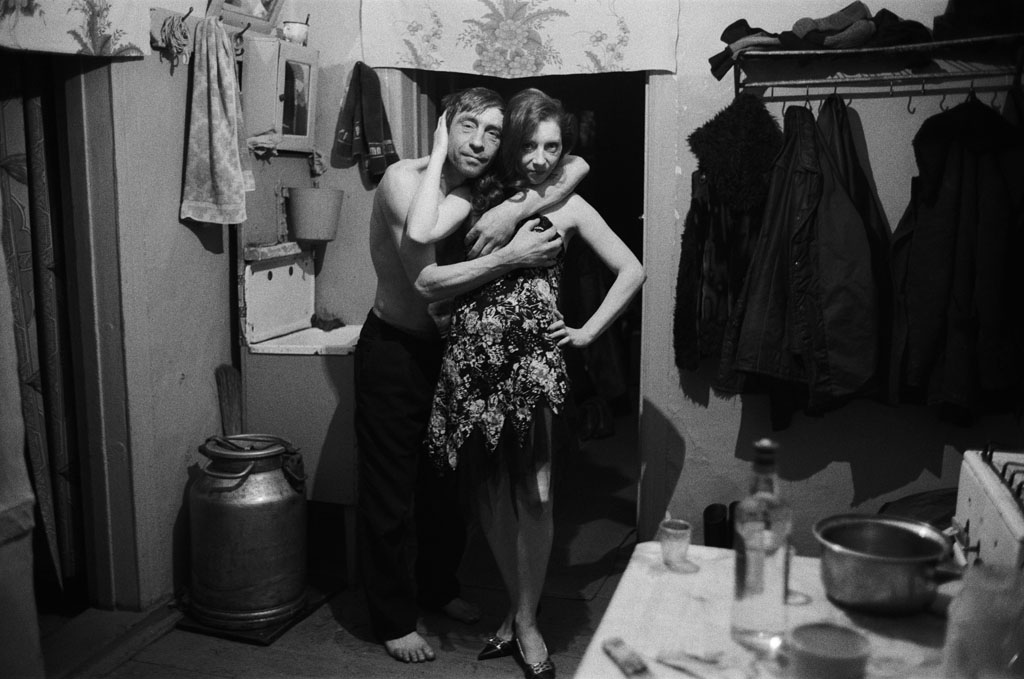
How do you select theme? I`ve seen you often focus on isolated communities and sometimes on white places on a map, e.g. your series from Pokrovka.
Pokrovka came into being because it is a native place of Luda, my close friend and one of the dearest persons for me. I wanted to go there for many years and finally did so. And I do want to go back there. In a way, I don’t feel like I select a theme or a place, but, instead, as if it selects me. I need to do it. I need to go there. You make choices, of course. And very often one thing leads to another.
Why these regions? What do you find there?
I like to find myself in remote and isolated places which are non-existent for most people. What I find there and what I’m probably looking for is raw life and emotions, the opportunity to have this first-hand experience of life. And, maybe, the urge to understand if I can really fit in and be part of it, kind of adopt their lifestyle. It is something bigger than the photographs themselves. And photographs is just something material, physical that I have as a result of going through this experience.
Did it ever happen that you were not welcomed in community you wanted to capture?
Not really or not that I remember now. But there were people who didn’t want me to be around. Once gypsies kicked me out of their house and I cried. One of the dream places I didn’t manage to stay in was an animal shelter in the United States. It was an amazing place. I guess the owner’s girlfriend was jealous of me and it just didn’t work out. But the most difficult thing for me would be to photograph my own family – it was difficult for me to take pictures of my grandmother and it is impossible for me to photograph my own father. He just doesn’t take it.
I understand that people in bad social conditions with no hope for better life usually find way out in some kind of addiction e.g. alcoholism. How do you approach it?
I faced addiction from early age in my own family as well as in the families of my close friends, etc.. When I was a child, I guess, the majority of men in our apartment block could have been called alcoholics. It was reality and I wasn’t unaware of it. You approach it the same way you approach everything else – it is part of life, of daily routine for so many people. I try to approach it with dignity and with a sense of equality. This is the most important thing.
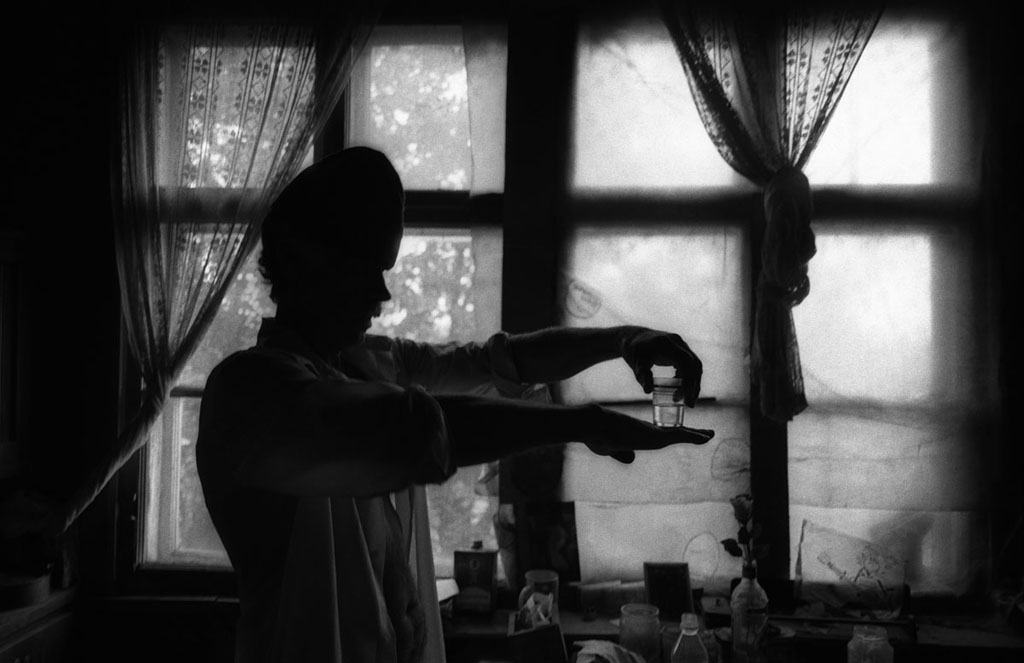
For how long do you need to stay in community to gain close contact with its daily life?
I would say as long as it feels right. The contact is sometimes very close from the very first day/moment. It can be there or not there at all. But it doesn’t mean you take pictures all the time. You just stay there as much as you can and then you go away.
Series “Luda” is very intimate and gentle. Was it hard to convince your friend for shooting? Did she like the result?
I didn’t have to convince Luda. I met her when I was starting to take photographs in the very first small photography school I came to. Initially I stayed in her house for one week (as part of a different project as I thought at that moment) and later on it turned out that the best images that came out of it all were images made in her house. And I continued to photograph her during that summer spending a lot of time together. She enjoyed it as much as I did, I hope. Both the process and the results.
Why do you think people are interested in social themes?
From what I see and what is evident people are mostly interested in themselves and nothing else matters for them – look at this endless flow of selfies, at people constantly making them, posting them, commenting on them.
Did you ever meet with criticism in a way that social photography is dirty and ugly and is priceless?
Yes, sure. I used to hear it quite often. And, again, in my family in the first place. My mother wouldn’t understand “why you need to photograph those homeless (villagers, alcoholics, etc.), because everybody knows how they live anyway and nobody wants to see it”.
Your style is not as expressive as e.g. photographers Keizo Kitajima or Ilias Georgiadis. You have more, I would say, “classic” approach. How did it evolve?
Again, I do not really know. Maybe, it is a little bit out of the way, but that’s how it goes. People used to ask me – Was this visual effect in the photograph (for example, long exposure and blur) something you wished to achieve, a deliberate choice or an accident? And I don’t know what to say. I was working inside a space with a dim light, with a certain camera and a certain type of film in this camera and this long exposure was the only exposure I could get in this situation. It is ambiguous. But the magic of photography is, of course, that you don’t know what the picture will look like, you imagine the picture. And in the end it can be totally different from what you’ve imagined it go be. It can be exactly like you imagined it to be. It can be very bad. It can be fabulous. It is like lottery or gambling. In a way photographer is a gambler. The medium and theme, the situation, have impact on what you do. But if I try to answer it earnestly, maybe, my points of reference have always been classical ones. And, probably, I need to grow to find my own approach.
Do you have community of documentary photographers in Saint Petersburg you can discuss your creation with?
Yes, I do have a couple of people (and not necessarily photographers) I can show my work to and ask for help during the selection process. And vice versa.
What was the last project you worked or currently working on? Can you describe it?
It is a very simple yet beautiful and dramatic story of an elderly woman who lives alone in an almost-abandoned village (near to where one of my grandfathers came from).
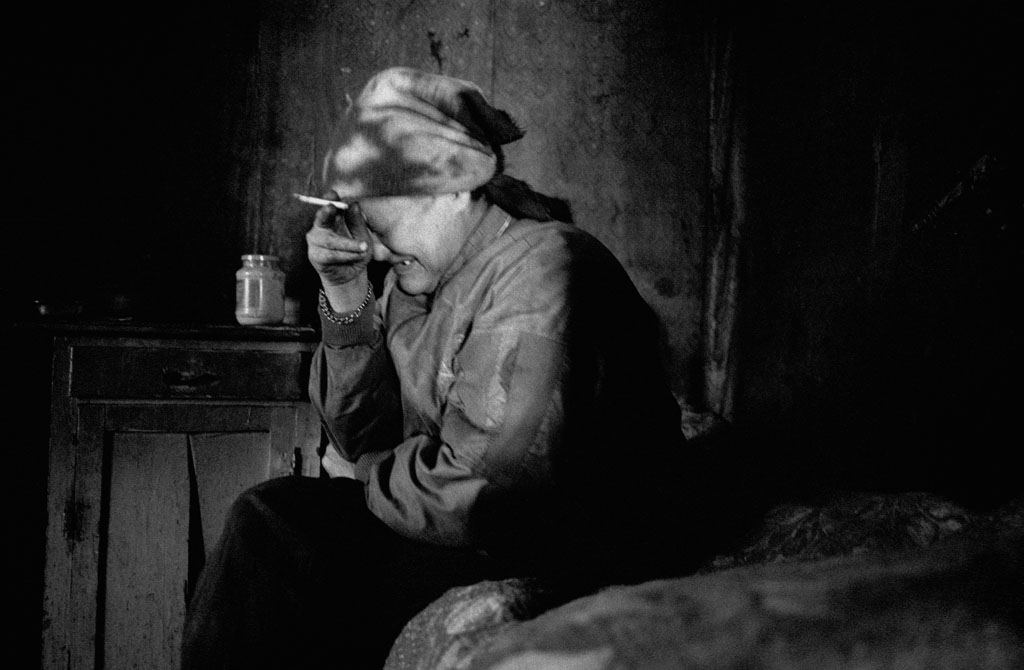
On your site (years 2013-2014) you have referenced teaching. Do you still teach?
I do not teach now. I stopped teaching at the Faculty of Photojournalism after I did it for one year. Since that time I only taught a couple of short-term workshops. I like teaching and I don’t mind teaching in the future, but between teaching and carrying out my own work I would go for the latter.
Can you live just from photography or do you have a full time job in some other field which covers your expenses?
It depends. I do not have a full time job. But I do have odd jobs from time to time. In Saint-Petersburg I sometimes work as an interpreter or translator. In Israel I worked as a baby-sitter and as a helper for a handicapped person for a little while. This was a good thing, we made friends and I would love to photograph her one day. She is a beautiful woman and character and I believe she would be wonderful in the pictures.
I think documentary helps people to see other societies and often is very emotional. How photography influenced you personally?
It must have influenced me so much by now that I cannot evaluate it, for sure. I can only hope it made me a better person, not worse. I would think it made me a better observer, more alert of details, and someone who is able to see, feel and doesn’t ignore what’s going on inside and around him/herself.
Alexandra Demenkova (*1980) is russian-israel documentary photographer currently based in Saint-Petersburg, Russia. She is focused on capturing series from remote villages, isolated communities and sometimes on white places on a map. By her own words: “I’m happy that photography has happened to me. I think it suits my temper a lot – I like the fact that every single picture is created in a fraction of a second. When I photograph I feel much better than when I don’t. It is as if I start to feel the firm ground under my feet or I forget that it is not there at all. And sometimes I feel as a magician. I believe, this explains everything.”
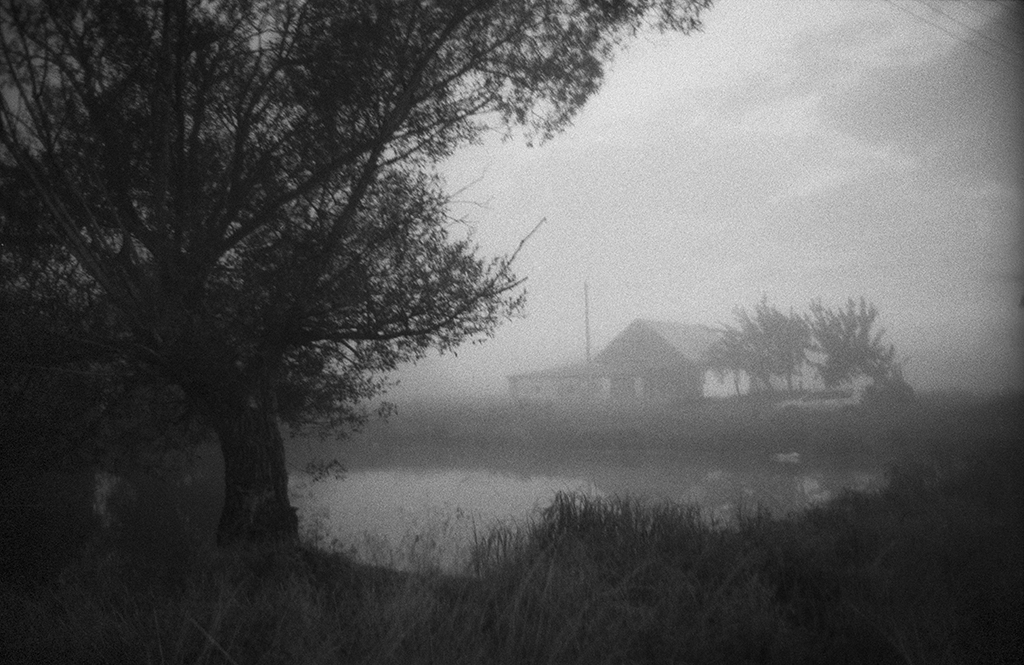
Russian village – photo essay by Alexandra Demenkova
